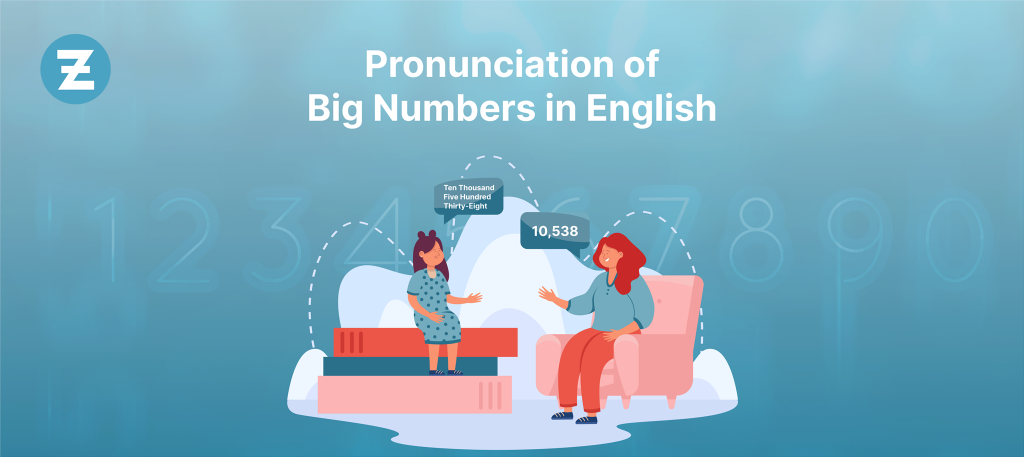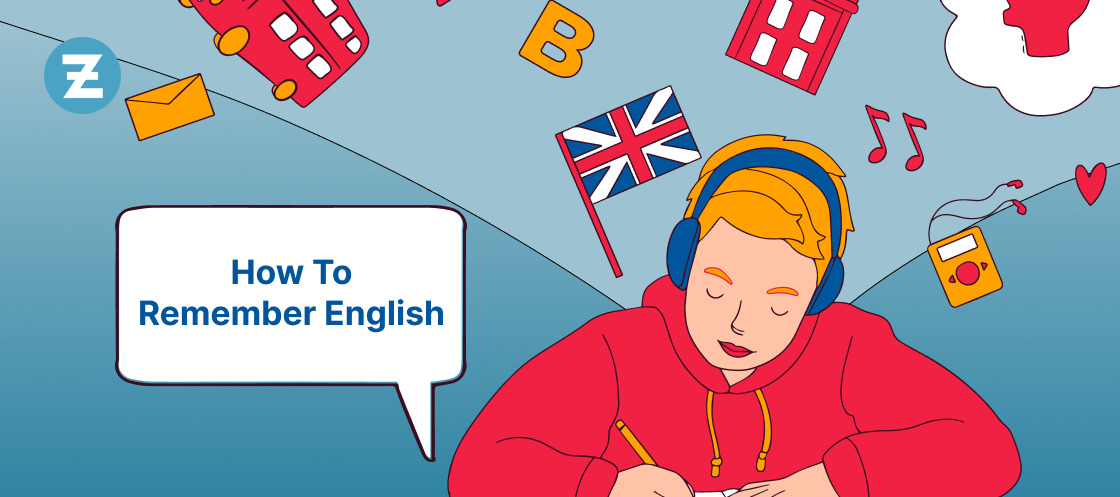Do you ever struggle with pronouncing long and complex numbers? When pronouncing larger numbers, it can be challenging to articulate them correctly. Pronouncing big numbers can be tough for students with math problems or professionals discussing large figures in business. There are techniques you can master to make pronouncing big numbers a breeze.
In this blog post, we’ll explore some tips and tricks for mastering number pronunciation, so you can confidently tackle any numerical challenge that comes your way. So, let’s dive in and discover how you can easily pronounce even the most complicated numbers!
Ways to pronounce large numerals more easily
Understanding Large Numbers
If you’re struggling with pronouncing large numbers, it’s important to understand what constitutes a “large” number. Typically, any number with six or more digits falls into large numbers. One useful strategy for making large numbers easier to pronounce is number grouping. It involves breaking up the digits of a large number into smaller, more manageable groups. For instance, instead of saying “123456789,” you could group the digits as “123,456,789.”
It’s also important to consider place value when pronouncing large numbers. Each digit in a number has a unique place value based on its position in the number. To illustrate, consider the number “123.” In this number, the digit “1” signifies one hundred, the digit “2” represents two tens, and the digit “3” represents three ones. Understanding place value can make it easier to pronounce large numbers because you can break them down into smaller, more manageable units.
Read Also: Some Of The Hardest Words To Pronounce In English
Pronunciation Techniques for Large Numbers
Breaking the Number Down
When pronouncing large numbers, breaking them into smaller parts can be highly effective. For instance, instead of struggling with saying “1,234,567,” breaking it down into “one million, two hundred thirty-four thousand, five hundred sixty-seven” can make a difference. By dividing the number into smaller parts, even a challenging number like “891” can be easier to pronounce. You can break it down into “eight hundred ninety-one,” eliminating the need to pause between the hundreds and the tens. It makes the number easier to articulate and avoids confusion.
Breaking large numbers into smaller parts is a helpful strategy to enhance pronunciation and ensure that the number is communicated clearly and concisely. So, next time you’re faced with a big number, try breaking it down into smaller parts and see how much easier it becomes to pronounce and remember.
Using Mnemonics
Mnemonics aid memory and help recall various types of information, including facts, directions, and numerical sequences. Mnemonics link information to a word, phrase, or image, making it easier to remember later. Whether you’re a student trying to ace an exam or a busy professional trying to keep track of important details, mnemonics can help you improve your memory and recall skills.
Let’s take a look at some helpful mnemonics for pronouncing large numbers:
Pi: Remembering the value of pi (3.14159265359) can be made easier by saying, “May I have a large container of coffee.” Each word in the phrase corresponds to a digit in pi.
Avogadro’s Number: Avogadro’s number (6.022 x 10^23) is a chemical constant to represent the number of particles in a mole. To recall this number, you can use the phrase, “A mole of something is Avogadro’s number.” This phrase cleverly uses the word “mole” to represent 6.022 x 10^23.
The Speed of Light: The speed of light (299,792,458 meters per second) is a large number that can be challenging to remember in memory. However, you can make it easier by saying, “My very eager mother just served us nine pizzas.” Each word in the phrase symbolizes a digit in the number, with “My” representing the first digit (3), “very” representing the second digit (0), and so on. These mnemonics can help you effortlessly remember these large numbers, making them easier to recall when needed.
Mnemonics can be a lifesaver when it comes to remembering large numbers. By creating a mental association between the number and a memorable phrase or image, you can retrieve the number more easily and accurately. It is particularly useful for complex or difficult-to-remember numbers, as it helps you break them down into smaller pieces. You can transform a daunting number into a memorable and accessible one.
Read Also: Common English Words with Multiple Meanings
Focusing on the Ending Digits
It is a strategy that can make even the biggest numbers more manageable. Focusing on the ending digits of a number, we can break it down into more manageable parts. For instance, take the number 4,892,341. By focusing on the last three digits, “341,” you can easily simplify the number and say, “four million, eight hundred ninety-two thousand, three hundred forty-one.”
The key to this strategy lies in the predictable patterns of the last few digits. Focusing on these digits allows you to pronounce the number easily without getting bogged down by the larger digits at the beginning. Try it out and see how it functions for you!
Exercises for Practice
To make big numbers easier to pronounce, practicing exercises is essential. Here are some useful exercises to help you get started: Break down big numbers into smaller groups. The nearest hundred, thousand, or million should be used for rounding numbers. Instead of stating “1,276,548,” say “1.3 million.”
This technique can make it easier to say larger numbers quickly. Familiarize yourself with scientific notation as a way of expressing big numbers that involve many zeros. For instance, instead of saying “300,000,000,” you can write it as “3 x 10^8.” Practice using this method to express large numbers more efficiently.
Enhancing your knowledge of finances requires frequent practice in comprehending and analyzing financial reports, stock prices, and other financial materials that frequently employ significant numerical values. You can also practice listening to news reports or reading news articles with large numbers.
Use Commas and Dashes
Using commas and dashes can make big numbers easier to pronounce. Commas serve to separate groups of three digits, while dashes are used to separate parts of a number. For instance, instead of saying “123456789,” you can say “123-456-789” or “123,456,789.” It helps to break down big numbers into smaller, more manageable parts, making them easier to read and understand.
Read Also: A Guide to the Different Types of English Minimal Pairs
Memorize Number Pronunciations
Making big numbers easier to pronounce can be achieved by memorizing the pronunciation of common numbers. By knowing that “1,000” is pronounced as “one thousand” and “1,000,000” is pronounced as “one million,” you can quickly and accurately read out large numbers without stumbling over pronunciation.
This simple technique can be especially useful when dealing with financial reports, scientific data, or other situations where precise communication is essential. By mastering the pronunciation of common numbers, you can confidently enhance your communication skills and convey your message.
Use Phonetic Pronunciations
Large numbers can be challenging to pronounce correctly. However, there is a solution – phonetic pronunciations. Phonetic pronunciations are simplified versions of words that make it easier to read out big numbers. For instance, “1,234,567” can be pronounced as “one-two-three-four-five-six-seven.” It makes understanding and communicating large numbers easier and without confusion.
Use Visualization Techniques
Visualization techniques can be extremely useful for making large numbers more manageable to pronounce. By visualizing the number and breaking it down into smaller parts, you can make it easier to understand and communicate. For instance, if you’re confronted with a number like “1,234,567,” you can break it down into more manageable parts like “one million,” “two hundred and thirty-four thousand,” and “five The number is 167. You can communicate intricate numerical information consistently and succinctly by using this strategy.
Say “and” after “hundred.”
Simply adding “and” after large numbers can help people pronounce them more easily.” For example, instead of saying “one thousand two hundred thirty-four,” “one thousand two hundred and thirty-four.” It divides the number into smaller chunks and uses the natural pronunciation of numerals in spoken language.
Additionally, when dealing with numbers in the millions or billions, separating them into groups of three (using commas) can also help make them easier to pronounce. As an example, rather than expressing “one billion two hundred thirty-four million five hundred sixty-seven thousand eight hundred ninety” as a long string of numbers, it is better to break it down into separate groups and say “one billion, two hundred thirty-four million, five hundred sixty-seven thousand, eight hundred ninety.”
Read Also: Best Tongue Twisters for English Pronunciation Practice
Using “grand” or “K” instead of “thousand.”
When it comes to pronouncing big numbers in English, many people struggle with the pronunciation of numbers with four or more digits. One solution to this problem is to use the word “grand” or the letter “K” instead of saying “thousand.”
For example, instead of saying “one thousand two hundred and thirty-four,” you can say “one point two grand” or “one point two K.” This method not only makes it easier to pronounce big numbers, but it can also make you sound more confident and fluent in English.
However, it is important to note that this method may not be appropriate in all contexts, such as formal or technical settings where precise numerical values are required.
Here are some additional tips to help you pronounce large numbers more effectively:
- When speaking large numbers, pronounce each syllable loudly. Doing this will simplify people’s grasp of what you’re saying.
- When saying large numbers, take your time. Rushing through them increases the chance of errors and misunderstanding.
- If you’re unsure about the pronunciation of a particular number, consider using a dictionary or online resource for reference.
- If you’re still struggling with pronouncing large numbers, consider taking a class or working with a tutor to improve your skills. They can provide personalized guidance and support to help you master this important skill.
Final Thought
In conclusion, understanding how to make big numbers easier to pronounce is a valuable skill that can help you communicate more clearly and effectively. With practice, you can develop your system for breaking down large numbers into manageable chunks and pronouncing them confidently. Whether you are giving a presentation, reading a report, or simply having a conversation, knowing how to pronounce big numbers properly can make a big difference in how you are perceived. So take the time to master this skill, and you’ll be well on your way to becoming a more effective communicator. Additionally, if you want to enhance your English skills, you can try the Zoundslike app. This game-based language learning app can be played individually or with a partner to improve your speaking and writing abilities. So, don’t wait anymore. Download now.








